科学合理地描绘国家文化在全球中的发展地位对推动人类命运共同体的建构具有重大意义。2025年9月23日,中国传媒大学人类命运共同体研究院与马来西亚拉曼大学人类命运共同体东盟研究中心的合作研究成果——《G20国家文化发展评价报告》在中国传媒大学学术报告厅正式发布。该报告旨在以客观、准确、动态地呈现G20国家在全球文化发展格局中的实际地位与变化趋势。
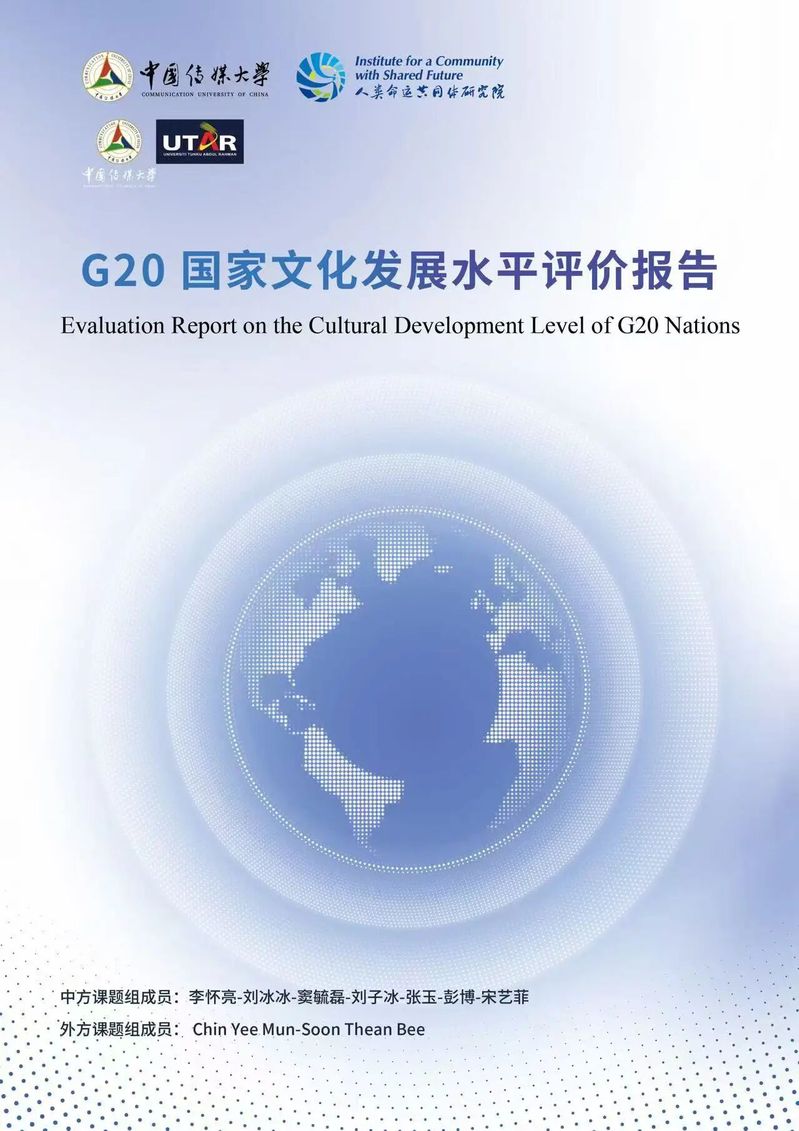
长期以来,国家文化发展评价体系多由西方机构主导,其理论根基主要建立在现代化理论之上,指导思想深受自由国际主义思潮影响,分析框架大多依托约瑟夫·奈的软实力理论,整体带有明显的西方中心主义倾向,这类评价往往难以全面、公允地反映各国文化发展的真实水平。为突破这一局限,自2020年起,中国传媒大学李怀亮教授带领团队积极开展创新探索,他们在系统梳理与比较中外文化评价理论、原则与方法的基础上,坚持尊重差异、包容多样的价值立场,依托国际权威机构发布的客观数据,对G20国家文化发展水平展开了系统性、动态化的评估。
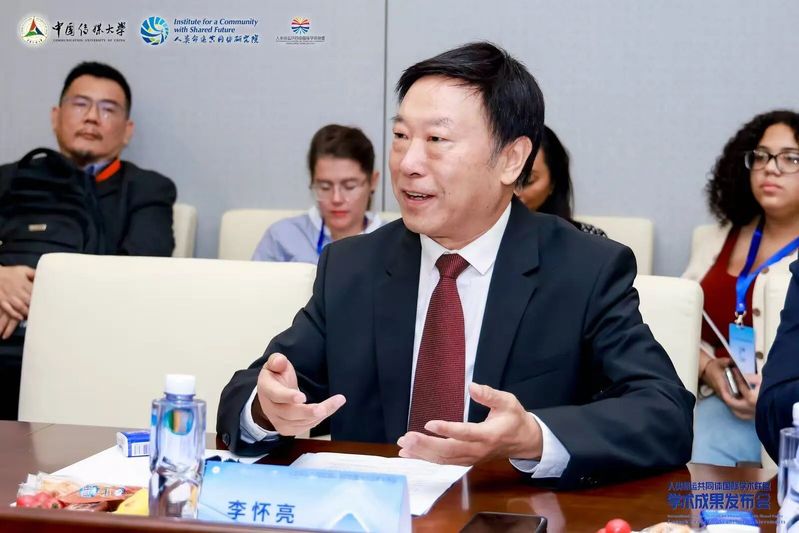
李怀亮中国传媒大学人类命运共同体研究院院长
构建新的文化发展评价指标体系过程中,研究团队坚持以国家发展为导向的宏观站位,以民众福祉作为文化发展的核心目标,统筹兼顾文化的精神属性与经济属性,平衡其工具性价值与成果性价值,并注重主客观数据的协调统一。为保障指标体系的科学合理,研究团队对20位国内外文化领域专家开展了两轮问卷调查,根据反馈意见对指标进行多轮修正与优化,最终确立包含4个一级指标、12个二级指标和46个三级指标的国家文化发展评价体系。其中,一级指标分别是“文化发展驱动力”“文化包容力”“文化创造力”以及“文化竞争力”。在数据来源方面,为增强研究的共识性,所用的客观性数据来源于世界银行、联合国教科文组织、联合国开发署等政府间国际组织,所用的主观性数据来源于世界价值观调查网站、欧洲价值观调查网站、Statista、霍夫斯泰德文化维度网站等国际权威调查和研究机构。在测度G20国家文化发展水平得分时,通过选取科学合理的指标测度口径,准确定位数据属性,综合运用客观赋权法-熵值法和主观赋权法-层次分析法,来确保评估结果的科学性。具体测度流程为,首先采用熵值法确定指标权重进而测度G20国家文化发展水平得分,其次,采用层次分析法确定指标权重进而测度G20国家文化发展水平得分,最后,将两种方法所得结果进行算术平均处理,从而得出G20各国文化发展水平的最终得分与排名。
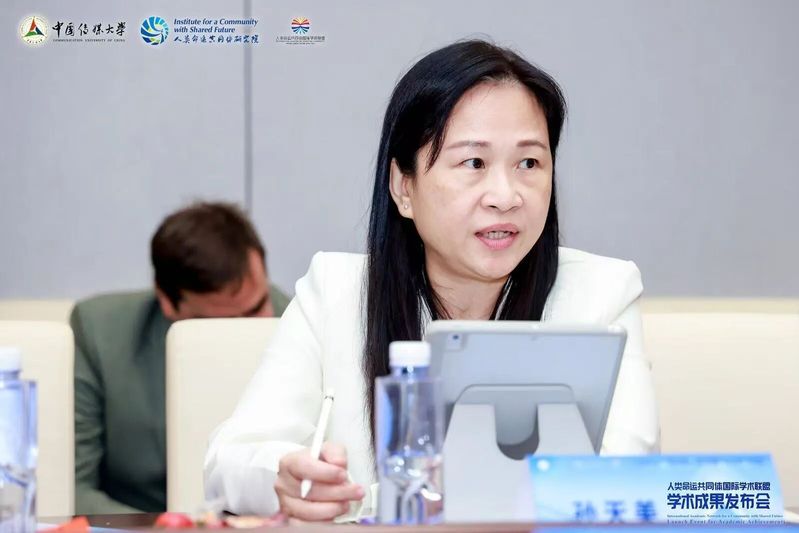
孙天美人类命运共同体东盟研究中心主任
《G20国家文化发展评价报告》已先后完成2019–2020版和2023–2024版两次测算,通过跨周期比较,为动态追踪G20国家文化发展态势提供了有力支撑。在2019–2020版中,G20国家文化发展水平排名依次为美国、中国、韩国、德国、法国、日本、印度尼西亚、澳大利亚、加拿大、土耳其、英国、墨西哥、意大利、沙特阿拉伯、印度、俄罗斯、巴西、阿根廷、南非,其中,中国位居第二位。
在2023–2024版中,G20国家文化发展水平排名则变为中国、韩国、德国、美国、澳大利亚、加拿大、印度尼西亚、沙特阿拉伯、土耳其、法国、英国、印度、日本、意大利、墨西哥、阿根廷、俄罗斯、南非、巴西,其中,中国已跃居第一位。
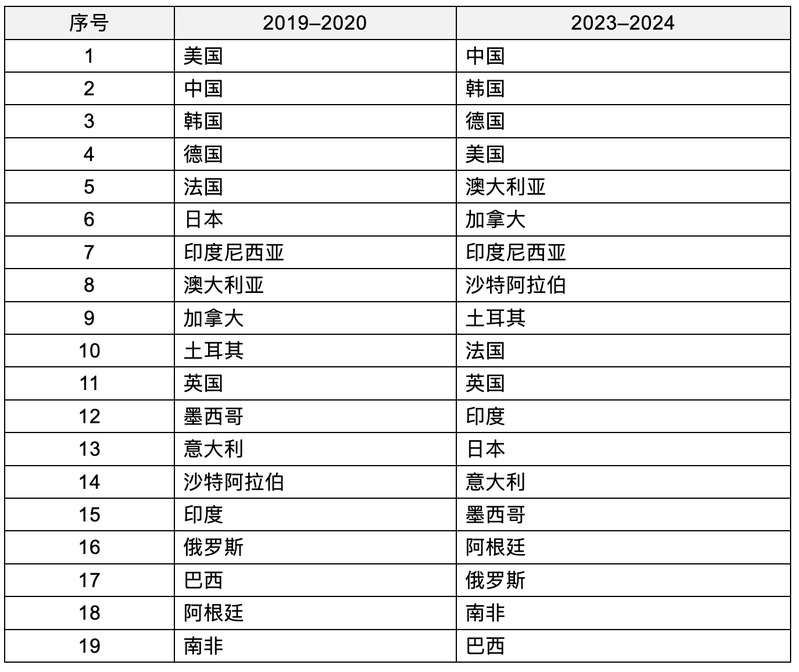
对比2023–2024版与2019–2020版的排名结果,沙特阿拉伯文化发展水平排名上升幅度最大,提升了6个位次,澳大利亚、加拿大和印度均上升3个位次,中国、韩国、德国、土耳其、阿根廷和南非也均有1个位次的提升。在排名下降的国家中,日本降幅最为显著,下降了7个位次,法国下降5个位次,美国与墨西哥各下降3个位次;巴西下降2个位次,意大利和俄罗斯均下降1个位次,而印度尼西亚和英国的排名没有发生变化。
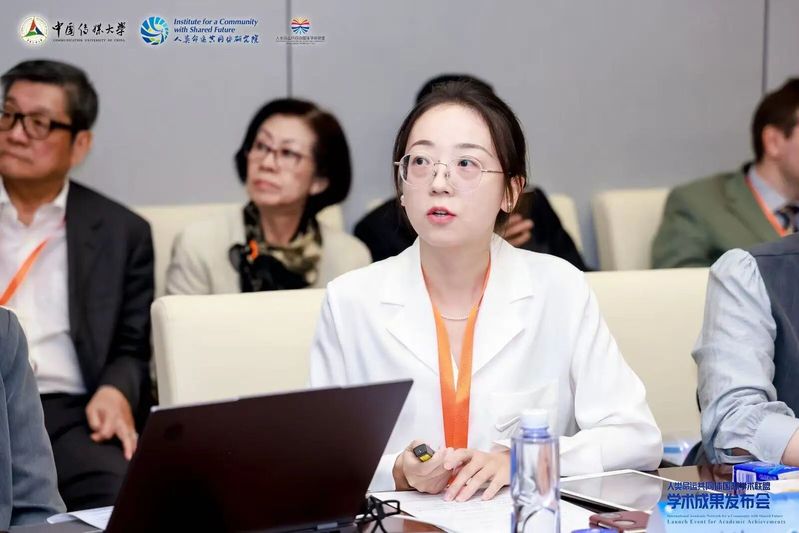
刘冰冰项目组核心成员、河南工程学院经济贸易学院讲师
通过对G20国家文化发展水平的评价实践,我们深刻认识到,世界各国的文化发展始终处于动态演进之中,没有永恒不变的格局,也没有放之四海皆准的模式。每一种文明都在其历史脉络与当代实践中焕发独特光彩,共同绘就了人类文明百花齐放的多彩图景。在各国命运紧密相连的今天,尊重文明多样性、包容发展路径差异,在理解中增进共识,在互鉴中凝聚智慧,才能携手迈向一个更加公正、包容、可持续的未来世界。
TheG20 National Cultural Development Evaluation Report was released in Beijing
Accurately and scientifically assessing the developmental standing of national cultures within the global context holds significant importance for advancing the vision of a Community with a Shared Future. On September 23, 2025, theG20 National Cultural Development Evaluation Report—a collaborative research achievement by the Institute for a Community with a Shared Future at Communication University of China and the ASEAN Research Centre for a Community with a Shared Future Tunku Abdul Rahman University of Malaysia—was officially released at the Academic Hall of Communication University of China. This report aims to objectively, accurately and dynamically present the actual status and changing trends of G20 nations in the global cultural development pattern.
For a long time, the global cultural development evaluation system has been largely dominated by Western institutions. Its theoretical foundation is mainly built on modernization theory, its guiding ideology is deeply influenced by the trend of liberal internationalism, and its analytical framework mostly relies on Joseph Nye's soft power theory. On the whole, it has an obvious Western-centric tendency. Such evaluations often fail to fully and fairly reflect the true level of cultural development of various countries. To break through this limitation, since 2020, Professor Li Huailiang from Communication University of China has led his team in actively carrying out innovative explorations. On the basis of systematically sorting out and comparing Chinese and foreign cultural evaluation theories, principles and methods, they have adhered to the value stance of respecting differences and embracing diversity. Relying on objective data released by international authoritative institutions, they have conducted a systematic and dynamic assessment of the cultural development level of G20 nations.
In the process of constructing a new cultural development evaluation index system, the research team has adhered to a macro perspective oriented toward national development, taken the well-being of the people as the core goal of cultural development, made overall plans to balance the spiritual and economic attributes of culture as well as its instrumental value and achievement value, and attached importance to the coordination and unification of subjective and objective data. To ensure the scientificity and rationality of the index system, the research team conducted two rounds of questionnaires among 20 domestic and international experts in the cultural field. Based on the feedback, the indicators were revised and optimized through multiple rounds, and a national cultural development evaluation system was finally established, consisting of 4 first-level indicators, 12 second-level indicators, and 46 third-level indicators. Among these, the first-level indicators are Cultural Development Driving Force, Cultural Inclusiveness, Cultural Creativity, and Cultural Competitiveness respectively. In terms of data sources, to enhance the consensus of the research, the objective data used are derived from intergovernmental international organizations such as the World Bank, UNESCO, and UNDP; the subjective data used are obtained from internationally authoritative survey and research institutions including the World Values Survey website, the European Values Study website, Statista, and the Hofstede Insights website. When measuring the cultural development scores of G20 nations, the scientific nature of the evaluation results is ensured by selecting scientific and reasonable indicator measurement standards, accurately identifying data attributes, and comprehensively applying the objective weighting method—entropy method—and the subjective weighting method—analytic hierarchy process (AHP). The specific measurement process is as follows: first, the entropy method is used to determine indicator weights, which is then applied to measure the cultural development scores of G20 nations; second, the AHP is adopted to determine indicator weights and further calculate the aforementioned scores; finally, the results obtained by the two methods are subjected to arithmetic average processing, thereby deriving the final cultural development scores and rankings of all G20 nations.
TheG20 National Cultural Development Evaluation Report had completed two rounds of calculations, covering the 2019–2020 edition and the 2023–2024 edition. Through cross-cycle comparison, it provided strong support for dynamically tracking the cultural development trends of G20 nations. In the 2019–2020 edition, the ranking of G20 nations by cultural development level was as follows , the United States, China(in second place), South Korea, Germany, France, Japan, Indonesia, Australia, Canada, Turkey, the United Kingdom, Mexico, Italy, Saudi Arabia, India, Russia, Brazil, Argentina, South Africa.
In the 2023–2024 edition, the ranking shifted to the following order: China, South Korea, Germany, the United States, Australia, Canada, Indonesia, Saudi Arabia, Turkey, France, the United Kingdom, India, Japan, Italy, Mexico, Argentina, Russia, South Africa, and Brazil,with China ascending to the first place.
Regarding changes in rankings, Saudi Arabia saw the most significant rise, climbing 6 places; Australia, Canada, and India each moved up 3 places; China, South Korea, Germany, Turkey, Argentina, and South Africa each rose by 1 place. Among nations that fell in the rankings, Japan experienced the sharpest decline, dropping 7 places, France fell by 5 places, The United States and Mexico each dropped 3 places, Brazil declined by 2 places, Italy and Russia each fell by 1 place, Indonesia and the United Kingdom remained unchanged in their rankings.
Based on the evaluation results of the cultural development level of G20 nations, we have come to a profound realization that the cultural development of all nations in the world is always in a state of dynamic evolution. There is neither an unchanging pattern nor a one-size-fits-all model. Every civilization radiates unique splendor through its historical context and contemporary practices, collectively painting a colorful picture of the blooming diversity of human civilizations. In today’s world where the fates of all nations are closely intertwined, only by respecting the diversity of civilizations, embracing differences in development paths, enhancing consensus through understanding, and pooling wisdom through mutual learning can we join hands to move toward a more just, inclusive, and sustainable future world.
文 编|刘冰冰
编 辑|周验
编 审|刘丰海
